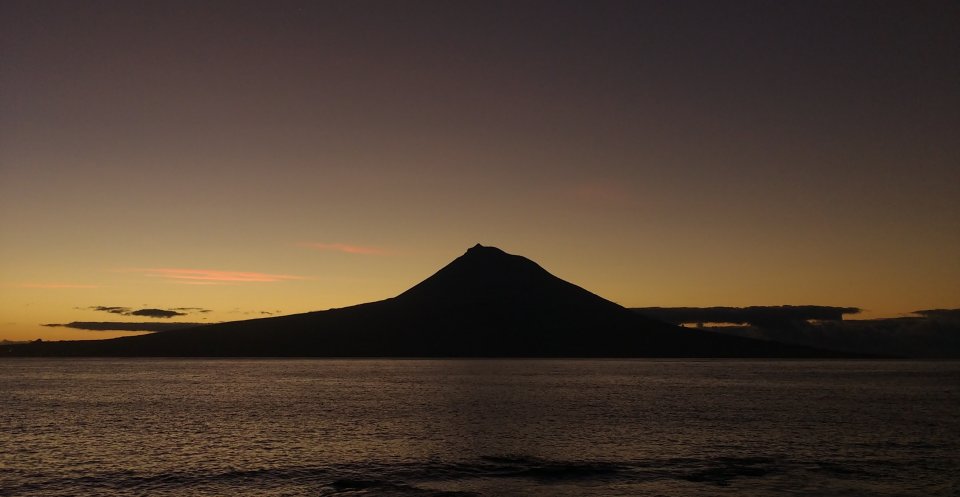
The Case Study centres on the richly biodiverse Faial-Pico Channel, a 240km² Marine Protected Area (MPA) in the Azores, Portugal, an EU Outermost Region. Despite increasing international, Azorean, and local protection for the area, biodiversity in the MPA continues to be lost. Numerous human activities at place in the Channel are placing pressure on the ecosystem, especially fishing and swiftly increasing tourist numbers. Fishers and tourism operators (including diving operators), value the biodiversity hotspots within the Channel, but have different objectives for how they should be managed. Managing the Channel is complicated by multi-level and overlapping responsibilities, with policy development and enforcement split across the local-level Nature Park of Faial and Nature Park of Pico, and the Azores-level Regional Directorate for Sea Affairs, who must consider local, Azorean, Portuguese, and EU policy targets. Additionally, as evidenced by the policy process that resulted in the 2016 increase in fishing regulations in the channel (Ordinance no. 53/2016), stakeholders such as recreational fishers and tourism operators are not well integrated into policy development. What is more, there is no formal MPA management plan for the Channel that clearly establishes targets, roles, timelines, monitoring, and enforcement.
Collaborating to halt declining biodiversity: Despite designation as a Marine Protected Area, biodiversity in the Faial-Pico Channel is falling. Our aim: to collaborate with local stakeholders and policy-makers and apply the AQUACROSS Assessment Framework to understand social and ecological aspects of the Channel, and identify actions to efficiently and equitably ensure the Channel’s long-run sustainability, balancing the objectives of commercial and recreational fishers, tourism operators, and other local stakeholders.
In close collaboration with local stakeholders and policymakers, we applied the AQUACROSS Assessment Framework to develop and evaluate ways to more efficiently and equitably manage the Channel and protect biodiversity. This included:
- Analysing local biodiversity, tourism, and fishing policies and stakeholder objectives to identify synergies, conflicts, and opportunities for improvement
- Characterising the Channel’s social-ecological system to understand links between drivers, pressures, the ecosystem and its biodiversity, and ecosystem services
- Identifying and evaluating an ecosystem-based management plan for the Channel
- Co-creation with local stakeholders: throughout, we collaborated with local stakeholders, including at two day-long workshops with recreational and commercial fishers, diving operators, NGOs, scientists, and local policy representatives.
We identified and evaluated a plan of five local policy solutions: (1) increased scientific monitoring, (2) increased stakeholder participation through a Stakeholder Advisory Group, (3) integrating and coordinating management of the Channel, (4) clearly communicating and enforcing fishing and biodiversity rules, and (5) sharing costs through a sustainability tax or diving fee. We found that, as well as protecting biodiversity, this plan supports the sustainability of the Faial-Pico Channel – increasing stakeholder engagement, knowledge, and policy coordination enables adaptive management, reduces conflict, and can improve effectiveness and efficiency.
This project is a Case Study under the Horizon 2020 project AQUACROSS, which builds on work undertaken in the previous pillars to develop concepts, practices and tools for better implementation of Ecosystem Based Management. This includes identifying and understanding the linkages between aquatic ecosystems and human well-being and identifying innovative management responses for aquatic ecosystems.
As part of the Horizon 2020 AQUACROSS project, this Case Study finds out that Stakeholder engagement and participation supports effective and equitable management of Marine Protected Areas. Stakeholders – such as recreational and commercial fishers and diving operators - can clearly identify challenges and priorities, co-create innovative solutions, provide low-cost knowledge and expertise, and support ongoing monitoring, enforcement, and evaluation.
For further information about the project: aquacross@ecologic.eu
Case Study contact: Hugh McDonald | Ecologic Institute | hugh.mcdonald@ecologic.eu
